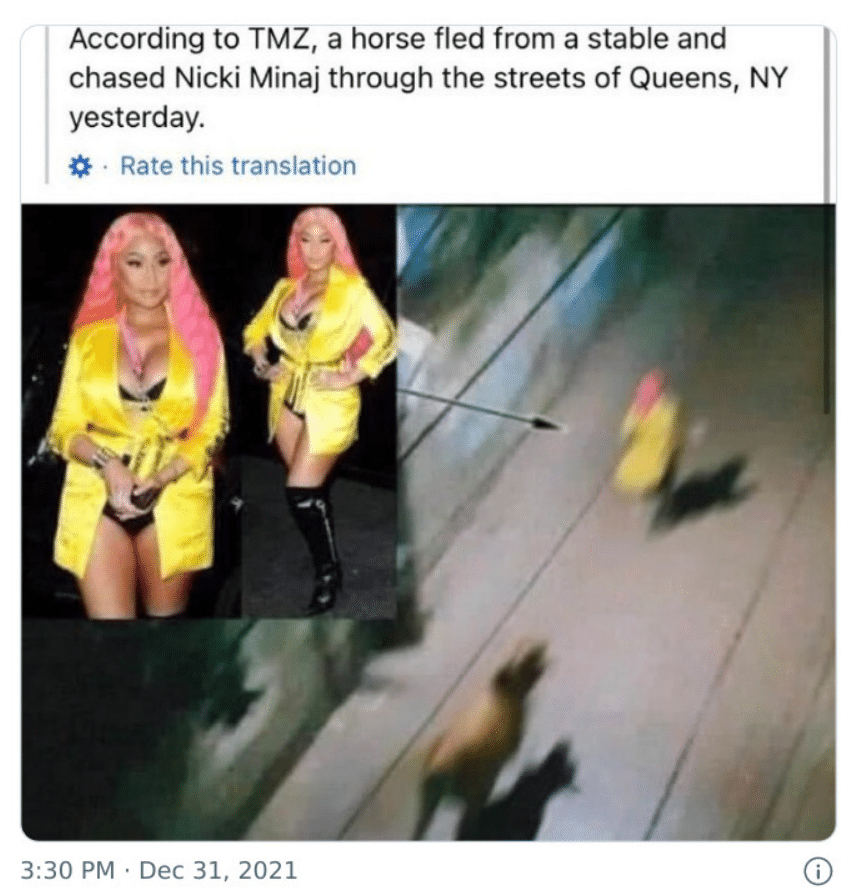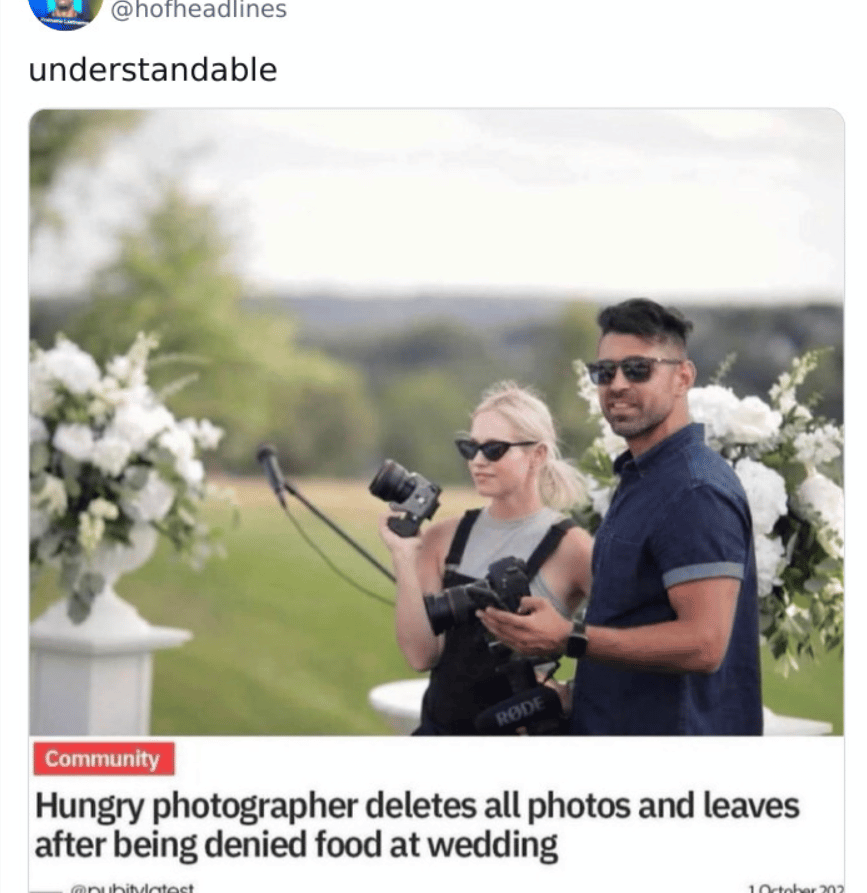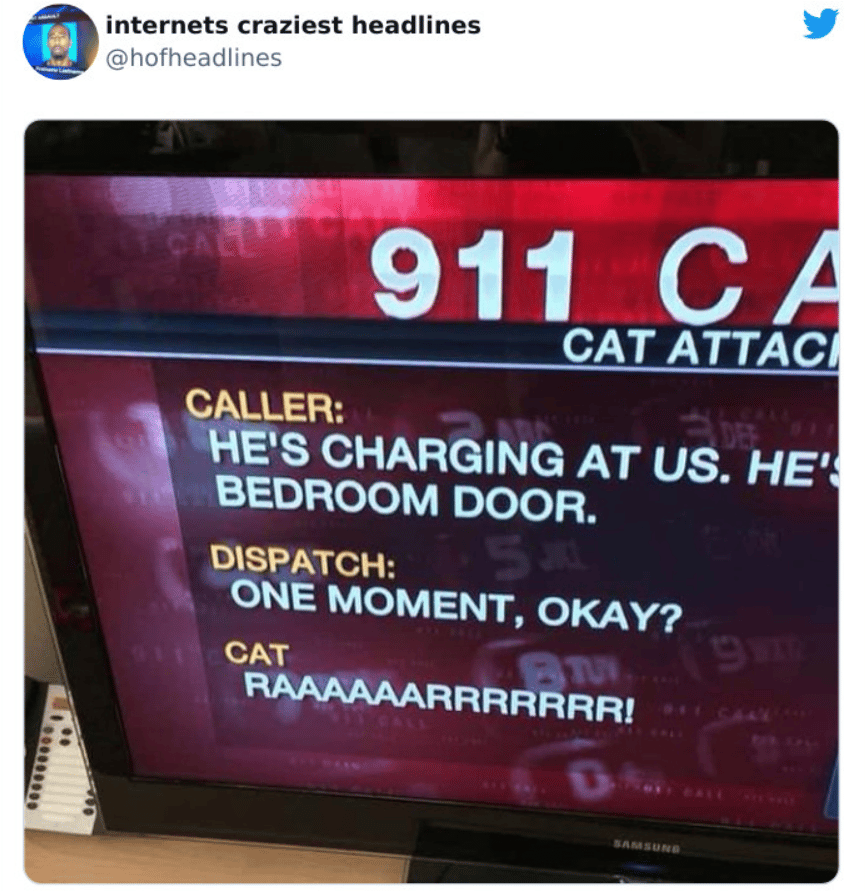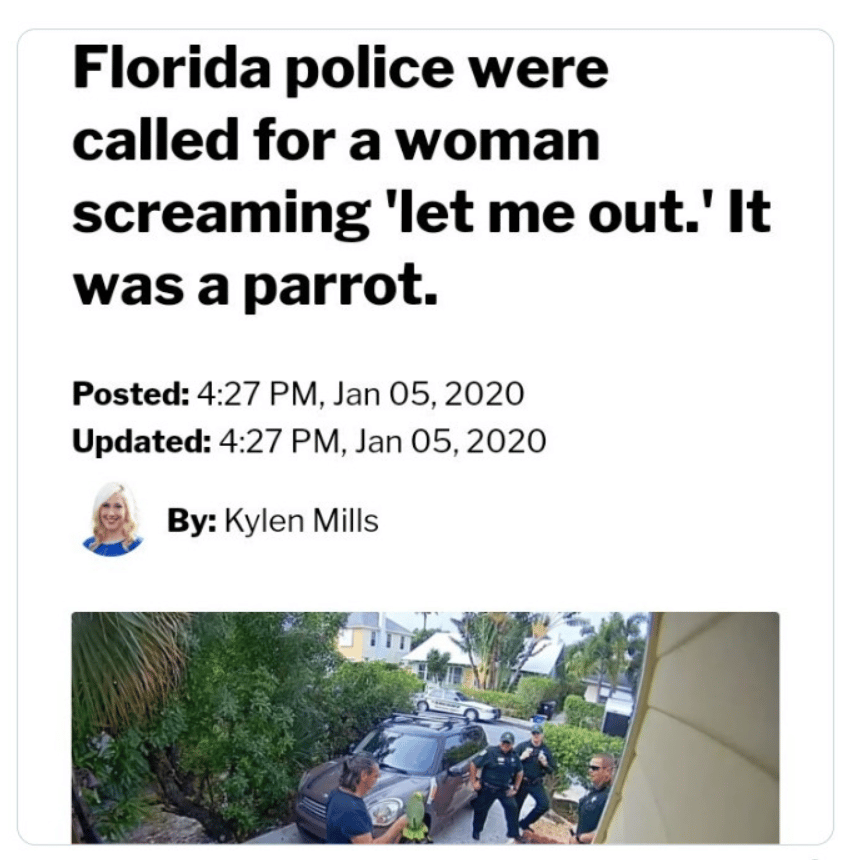Have you ever heard of a hilariously bizarre incident? Or probably, you might have come across such news. If not, we got you covered.
Some people might argue saying that news is boring, but we bet they probably never stumbled upon ridiculous, weird, and straight-up stupid stories that made it both to TV and print. To prove those people wrong, we have gathered 35 of the funniest headlines posted on the “Internet’s Craziest Headlines” Twitter account.
Every once in a while comes a wild headline that puts a smile on our faces and makes our day. Ranging from absurd to stupid to outright funny, there are various stories and headlines that have made it to TV and print news, and let’s face it, a majority of them are from Florida.
“Internet’s Craziest Headlines” keeps track of such headlines and news articles. Some of the classics include “China may be using the sea to hide its submarines,” “Large cat spotted” to “Man sold TV,” and “buy remote.” The creators of this account bring the most bizarre collection of titles and captions for you to enjoy.
So get ready to witness a whole new level of absurdity because we have selected some of the best posts this account had to offer. Continue scrolling and don’t forget to tell us which headline made you scratch your head the most.
1.

2.

3.

Some say “You can’t judge a book by its cover”, but it seems that plenty of people decide whether an article is worth reading or a news segment worth watching just by their titles. According to Brian Clark, the founder of Copyblogger, 8 out of 10 people will read the headline, but only 2 out of 10 will read the rest.
After all, getting your title clicked on is hard work. It has to be specific, rewarding, and intriguing all at the same time. Plus, it has to be useful if your goal is to reach more people. The headline is the first (and sometimes the only!) impression you make on a potential reader.
“Writing a great headline doesn’t guarantee the success of your writing. The benefit conveyed in the headline still needs to be properly satisfied in the body,” Clark wrote. “But great body content with a bad or even marginal headline is doomed to go largely unread.”
4.

5.

Lina Survila, the editor in chief of Abstract Stylist online magazine, has years of experience working in the press. She told Bored Panda in a previous interview that “editors are often pressured to bring better results with each article, so headline wars have become the real deal today.”
6.

7.

She argued that there’s a fine line between an informative headline and a fake one. “First, we all need to know that headlines play a big role in Google’s ranking magic. Every editor has a wish for their article to reach the top position, meaning more clicks if a user is often searching for it,” Lina explained.
“So because an editor wants to reach more people, they end up using trendy keywords which result in misleading headlines,” Lina said and added that it happens more often than you’d think.
8.

9.

The founder of Abstract Stylist also mentioned that “clickbait headlines often mislead people, and those who do not bother to open the article might mislead other people too by spreading the wrong message. For example, recently, I read that K. Reaves is married to Winona Ryder, well, it was stated in the headline, and actually, they were married in the movie.”
10.

11.

12.

13.

However, it turns out that readers also contribute to spreading misleading information — some people share links on their social media feeds without ever reading what’s inside. In 2016, satirical news site The Science Post published an article with a troubling headline: “Study: 70% of Facebook users only read the headline of science stories before commenting”. However, the body of the article contained nothing more than “lorem ipsum” placeholder text. But nearly 46K people shared the post.
14.

15. 16.
16.

According to a study by computer scientists at Columbia University and the French National Institute, 59 percent of links shared on social media have never actually been opened and read.
“People are more willing to share an article than read it,” study co-author Arnaud Legout said. “This is typical of modern information consumption. People form an opinion based on a summary, or a summary of summaries, without making the effort to go deeper,” he said.
17.

18.

19.

20.

21.

22.

23.

24.

25.

26.

27.

28.

29.

30.

31.

32.

33.

34.

35.

Did you find these absurd news headlines funny? You can share this post with your friends and family to show them what really is going on in this world.



 16.
16.





